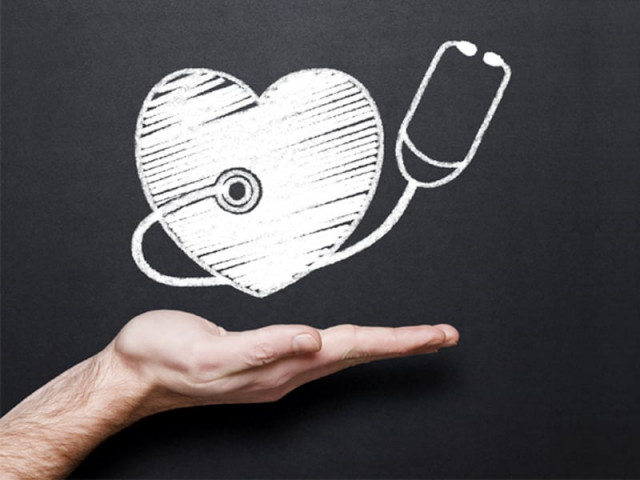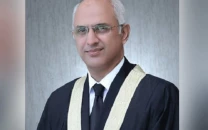World Stroke Day: ‘Healthy, smart living key to avoiding strokes’
30 to 40% of people who get a stroke die within the first month, says doctor.

While heart problems are often associated with old age and fading health, the reality is that thousands of healthy young people die of heart attacks every year. Strokes are caused by sudden blockage of arteries in the brain caused by impaired blood supply or bleeding, something that can happen to an otherwise healthy person as well.
Sadaqat Hussain, 33, suffered from a stroke last year. The father of two girls vividly remembers the day it happened.
“I was offering Maghrib prayers in the office. Suddenly, I felt pain in my right arm and later it, along with tongue, stopped functioning. I made it to my boss’s office in pain but was unable to tell what had happened to me,” Hussain told The Express Tribune.
For a moment he was shocked and was unable to understand what exactly happened to him and was taken to the Pakistan Institute of Medical Sciences (Pims).
“I was in a bad condition and was shifted to Shifa International Hospital (SIH) for treatment. I was unable to talk or move my arm. I felt like a living corpse,” he said. He is still unaware of the reason behind his stroke as he had no family history of heart disease or diabetes.
“I am from a poor family so my diet is also very simple,” he said.
After getting treatment, he regained his speech, but his right hand is still paralysed and he has had to adapt to using his left hand.
The Express Tribune spoke with a number of medical practitioners on in connection with World Stroke Day on October 29 (today). Neurologists expressed deep concern over the increase in the number of people in Pakistan between 30 and fifty suffering strokes. They said the lack of awareness about healthy lifestyles was partly to blame.
SIH Head of Neurology Dr Ismail Khatri and Pims Head of Neurology Dr Khaleequz Zaman said that a majority of people having strokes reach the hospital when they are critically ill and many die.
Dr Khatri attributed the rise in strokes to high blood pressure, obesity, diabetes, high cholesterol, excessive use of tobacco, especially in paan, naswaar, gutka and sheesha. Hypertension and limited physical activity due to rural-urban migration also play a part.
“About 350,000 Pakistanis suffer their first stroke every year, while 150,000 get it for the second time annually,” he said.
He noted the low survival rate, as 30 to 40% of people who get a stroke die within the first month.
“[Tissue plasminogen activator] is a medicine which should be administered within three to four hours of a stroke, but it is unavailable in Pakistan,” he said.
He further stressed on the need for psychological counselling for stroke victims as many feel disabled and helpless.
Dr Zaman said a majority of people do not get timely and proper treatment for children with heart disease, which can result in strokes at a young age.
“Balanced diet and proper fluid intake, regular exercise and stress-free living can help prevent strokes,” he said. “Everyday around 10 new stroke cases come to the Pims emergency department,” he said, while noting that a majority of stroke patients die as they cannot afford transport expenses to reach a hospital in time for initial treatment or follow ups.
Benazir Bhutto Hospital (BBH) Rawalpindi Medical Registrar Dr Umer Saeed said that over 500 new patients suffering from stroke come to public hospitals in the twin cities every month.
“Unfortunately there is not a single stroke centre in the country, and there is no CT scan facility available in a majority of public hospitals, even though it is the primary medical test for strokes.”
Published in The Express Tribune, October 29th, 2011.



















COMMENTS
Comments are moderated and generally will be posted if they are on-topic and not abusive.
For more information, please see our Comments FAQ